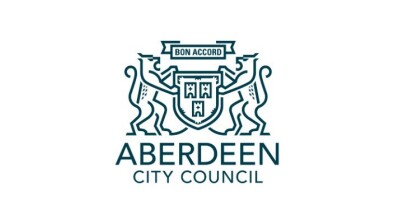Aberdeen City Council approves £48.8m housing budget proposals

Budget proposals for Aberdeen City Council’s 2016/17 Housing Revenue Account (HRA) and Housing Capital Account have been approved by councillors.
The agreement enables the setting of rent levels for 2016/17, provisional rent levels for financial years 2017/18 to 2020/21, and in turn, the setting of a capital programme for 2016/17 as well as a provisional programme for 2017/18 to 2020/21.
In line with national legislation, the council sought the views of its tenants on a proposal to maintain the rent policy at the current rate of inflation plus 1 per cent.
Based on RPI figures at the time of the consultation, inflation plus 1 per cent would have meant a rent increase of 2.1 per cent for 2016/17.
For the first time in a number of years, tenants did not agree with the proposed increase. Of the 3,212 who responded, 65 per cent disagreed and 35 per cent agreed.
At a meeting of the council, it was agreed that, during the current economic climate, many families would struggle with such an increase.
The council agreed a rent increase of 1.7 per cent per week for this financial year, taking effect from Monday, April 4, 2016.
Councillors also backed a proposal to cut heat with rent charges by £2 a week. The level was frozen in the 2015/16 budget process and officers were asked to review the charges to avoid any unexpectedly large bills in cold winters.
It was also agreed to continue the practice of using all capital receipts from the sale of council houses are used to repay debt for the financial year 2016/17 until Right to Buy comes to an end.
To ensure that the council can deliver the priorities for its housing stock and tenants, it was agreed that the budget includes a revenue contribution to the Housing Capital Programme for 2016/17 of £23.9 million. This figure, combined with additional borrowing and government grants, means that gross expenditure for 2016/17 will be £48.8m.
In the next five years, Aberdeen City Council is due to spend £159m in the Capital Programme, and of that total, about £90m will be statutory spending on SQHS and Energy Efficient Standards for Social Housing (EESSH).
The non-statutory spends are £23m on new builds at the Smithfield School and Manor Walk sites, £15.6m on health, safety and security issues, £5.7m on support for the elderly and vulnerable and £5.4m on community initiatives.
For the year ahead, 218 homes will be fitted with new kitchens, 125 with new bathrooms, 1,820 will be rewired, while windows will be replaced in 190 homes along with communal windows in 40 blocks of flats.
The programme of over-cladding and window replacements in high-rise blocks in Seaton that started in 2015/16 will be completed in 2016/17 and a similar programme will begin on a further four blocks in the same area.
A further 230 properties in the Froghall area will get external cladding, window replacements and, if necessary, heating replacements. Undertaking this work in the multi-storeys and tenements will drive down heating costs and help to tackle fuel poverty in the city.
Councillors were also told there has been a significant improvement in rent arrears, which have been reduced and stabilised, while repossessions have also decreased.
To date this year, the figure is 85. At the same time last year it was 122, which equates to an improvement of 30 per cent.
Communities, housing and infrastructure convener, Councillor Neil Cooney, said: “Housing in Aberdeen faces exceptional and unique challenges, with demand for affordable homes far outstripping supply.
“We are doing more than any other local authority in Scotland to address the supply side, and we have succeeded in raising service levels.
“Through this budget agreed today, we will continue to raise standards, we will continue to extend affordable heating and we continue to deliver modernisation and improve the quality of our housing stock.
“It is all about helping our tenants here in Aberdeen and improving the quality of life.
“During the annual rent consultation – for the first time in years – tenants disagreed with the proposed rents formula.
“We can understand the reasons for disagreement – the cost pressures on family budgets and the worries at the time surrounding the proposed welfare and tax credit cuts. Since then, inflation has eased and the welfare cuts have been delayed.
“However, the tenants have spoken and we have listened to them.”





